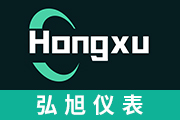Undoubtedly, foreign brands have strong control over the domestic medical device market, especially the high-end medical device market. According to the statistics of the National Bureau of Statistics, in 2012, the income of enterprises above designated size in China's medical device industry has reached 156.5 billion yuan, with a compound growth rate of 21.3% in the past 10 years. Professor Fan Yubo, chairman of the Chinese Society of Biomedical engineering, once said that at present, more than 70% of China's high-end medical devices rely on imports, including nearly 100% of high-end knee joints, cardiac pacemakers, etc.
According to data from the Medical Device Department of the China Chamber of Commerce for Import and Export of Medical and Health Products, in the field of CT equipment alone, five companies including Siemens and Toshiba have a domestic market share of up to 90%
Relevant personnel pointed out that vertical monopoly has become the most commonly used monopoly technique by foreign medical device enterprises. Vertical monopoly agreements, also known as vertical restriction agreements, vertical agreements, etc., refer to agreements reached by two or more operators in the same industry who are at different economic levels and do not have direct competition but have a buying and selling relationship, through explicit or implied means, to exclude or restrict competition.
Due to advanced technology, it is an indisputable fact that foreign medical device companies have long occupied the high-end market in China. It is not ruled out that these world manufacturing giants will use their position in the market to control product prices. However, their ability to ensure that the price does not fall, to a large extent, also depends on the bribery behavior in the distribution, that is, their gray expenditure on Marketing channel, that is, huge marketing expenses.
For hospitals, they would rather buy foreign products that are several times or even 10 times more expensive than domestic products that are only a fraction of the price. The important reason lies in the layers of gray transactions& Rdquo; Bai Yu, Chairman of Rehabilitation Home Medical Device Chain Company, said that he believes that the competition for household medical devices has become completely market-oriented, while the competition for hospital equipment procurement is heavily shrouded in darkness.
The foreign-funded medical machinery industry is very active in the Chinese market, occupying a very high market share, and maintaining its advantages through monopolies. In the face of this situation, domestic medical machinery to catch up, relying solely on national policy support is not enough. We must start from ourselves, strengthen our hardware level, and continuously improve competitiveness. (Source: China Pharmaceutical Machinery Equipment Network)

